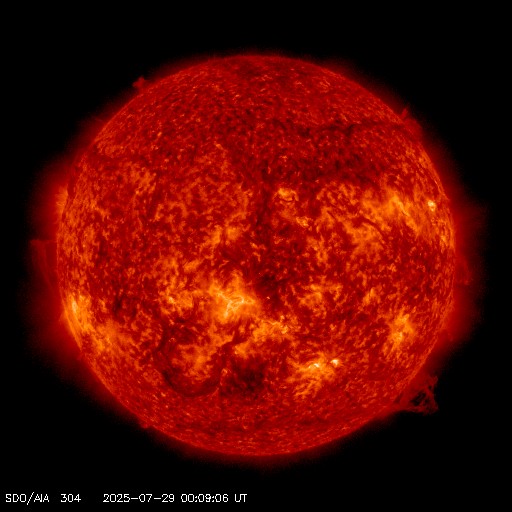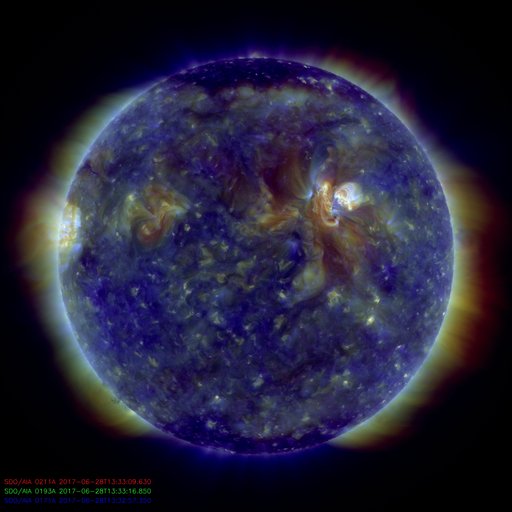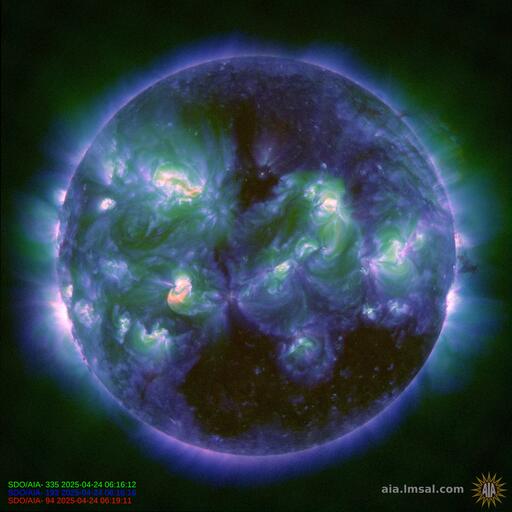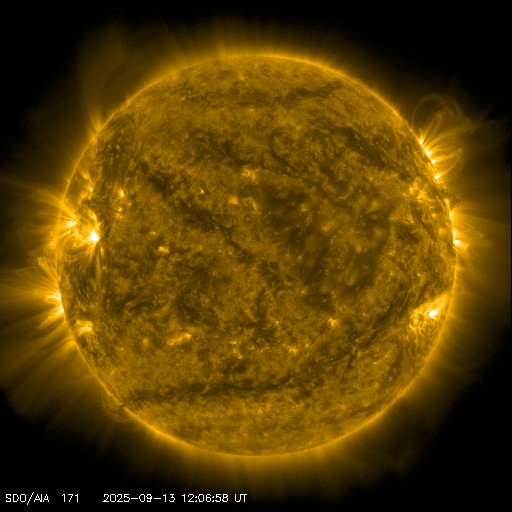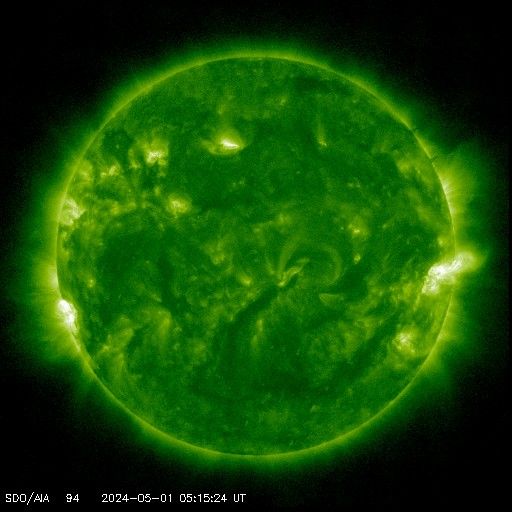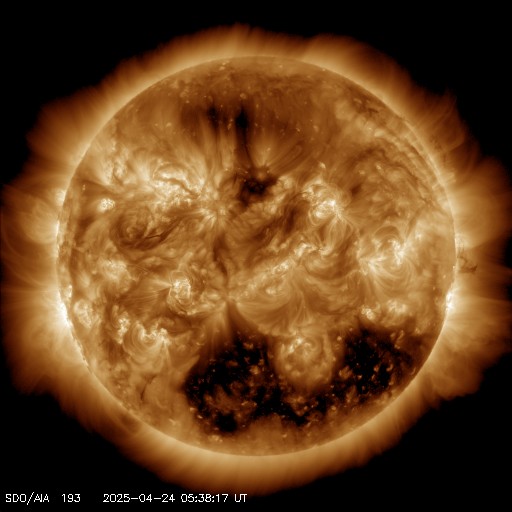Update 14:25 UTC March 5, 2012 :
A X1.1 long duration solar flare has occurred around sunspot region 1429 at 04:09 UTC March 5, 2012. This LDE event is still in progress at this time.
A R3 radio blackout has occurred and there was a large CME associated with this X1.1 flare.
A portion of the CME is Earth directed.
CME arrival time: Wed. March 7, 2012 .
There is a chance of a SEP (Solar Energetic Particle), or Proton event in the coming hours.
.
Read full report for all details and images
Check back often for current updates
Most Recent NOAA Space Weather Alert :
ALERT: X-Ray Flux exceeded M5
Threshold Reached: 2012 Mar 05 0345 UTC
NOAA Scale: R2 - Moderate
Potential Impacts: Area of impact centered on sub-solar point on the sunlit side of Earth. Extent of blackout of HF (high frequency) radio communication dependent upon current X-ray Flux intensity. For real-time information on affected area and expected duration please see
http://www.swpc.noaa.gov/drap/index.html
What is a R3 radio blackout?
http://www.swpc.noaa.gov/NOAAscales/#RadioBlackouts
Updated CME Information :
STRONG SOLAR ACTIVITY: When the CME from today's X-flare arrives, a geomagnetic storm might already be in progress. An earlier CME is en route and nearing our planet. According to analysts at the Goddard Space Weather Lab, the cloud, which was produced by an M2-class eruption from sunspot AR1429 on March 4th, could deliver a glancing blow to Earth's magnetic field on March 6th at 04:30 UT (+/- 7 hr).
IA. Analysis of Solar Active Regions and Activity from 03/2100Z
to 04/2100Z: Solar activity was moderate. A long duration M2/1N
flare was observed at 04/1052Z from Region 1429 (N18E55).
Associated with the event was a 750 sfu Tenflare, Type IV Radio
Sweep, and a CME first visible in STEREO B COR 2 Imagery at 04/1210Z
(estimated speed of 840 km/s). This region is classified as a Dkc
spot group with a Beta-Gamma-Delta magnetic configuration. Further
analysis of the CME will be necessary as imagery becomes available,
however there appears to be a partial Earth-directed component. A
glancing blow is possible from this event.
http://www.swpc.noaa.gov/forecast.html
to 04/2100Z: Solar activity was moderate. A long duration M2/1N
flare was observed at 04/1052Z from Region 1429 (N18E55).
Associated with the event was a 750 sfu Tenflare, Type IV Radio
Sweep, and a CME first visible in STEREO B COR 2 Imagery at 04/1210Z
(estimated speed of 840 km/s). This region is classified as a Dkc
spot group with a Beta-Gamma-Delta magnetic configuration. Further
analysis of the CME will be necessary as imagery becomes available,
however there appears to be a partial Earth-directed component. A
glancing blow is possible from this event.
http://www.swpc.noaa.gov/forecast.html
SEP flux at energies above 10 MeV started to rise since around 00:00 UT today (probably resulting from the CME associated with yesterday's M2.0 flare). Crossing the threshold of an SEP event is probable in the coming hours. Protons from both CMEs are delayed due to the eastern position of the CME source region. http://www.sidc.oma.be/index.php

